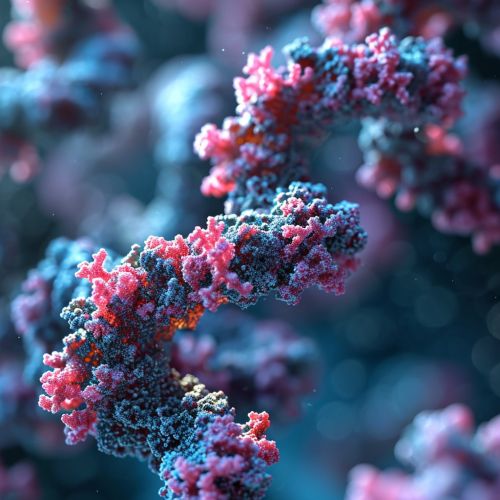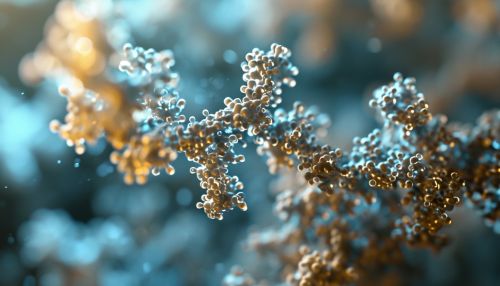Protein Folding Biochemistry - Canonica AI
Introduction
Protein folding is a vital process that occurs in cells, which is the physical process by which a protein chain acquires its native 3-dimensional structure, a conformation that is usually biologically functional, in an expeditious and reproducible manner. It is the physical process by which a polypeptide folds into its characteristic and functional three-dimensional structure from a random coil. Each protein exists as an unfolded polypeptide or random coil when translated from a sequence of mRNA to a linear chain of amino acids. This polypeptide lacks any stable (long-lasting) three-dimensional structure. As the polypeptide chain is being synthesized by a ribosome, the linear chain begins to fold into its three-dimensional structure.


The Process of Protein Folding
Protein folding is a complex process that involves a variety of different mechanisms and stages. The process begins with the synthesis of the protein, which is then followed by the folding of the protein into its final, functional form. This process is guided by the protein's amino acid sequence, which determines the protein's final structure and function.
Protein Synthesis
Protein synthesis is the process by which proteins are produced in cells. This process involves the translation of genetic information encoded in messenger RNA (mRNA) molecules into a sequence of amino acids that make up a protein. This process occurs in the ribosome, a cellular organelle that serves as the site of protein synthesis.
Protein Folding
Once a protein has been synthesized, it must then fold into its final, functional form. This process is guided by the protein's amino acid sequence, which determines the protein's final structure and function. The process of protein folding is highly complex and involves a variety of different mechanisms and stages.
Protein Folding and Disease
Protein misfolding is a serious issue that can lead to a variety of diseases, including neurodegenerative diseases like Alzheimer's and Parkinson's, as well as certain types of cancer. Misfolded proteins can aggregate and form plaques that interfere with the normal functioning of cells. Understanding the process of protein folding, and how it can go wrong, is therefore of vital importance in the field of biochemistry.
Canonica AI and Protein Folding
Canonica AI is a computational tool that uses artificial intelligence to predict protein folding. This tool uses machine learning algorithms to analyze the amino acid sequence of a protein and predict its final, folded structure. This can help researchers understand the function of a protein, as well as how changes in its amino acid sequence can affect its structure and function.
